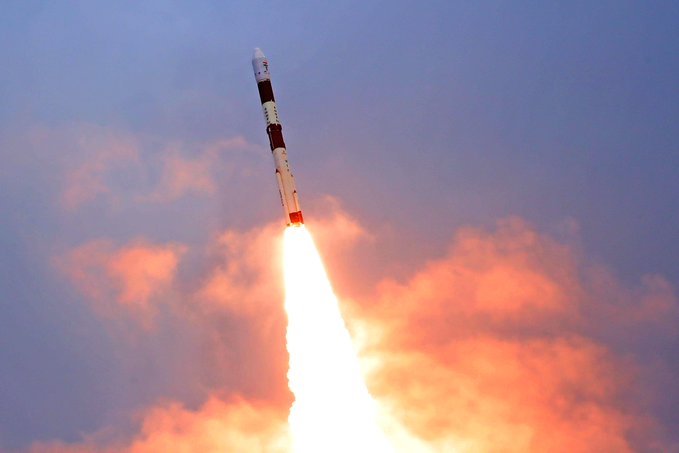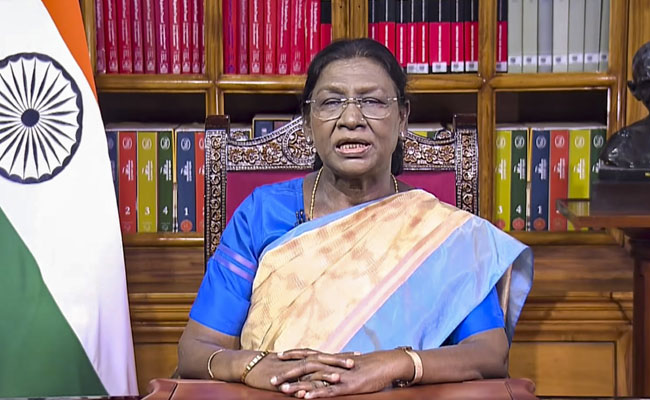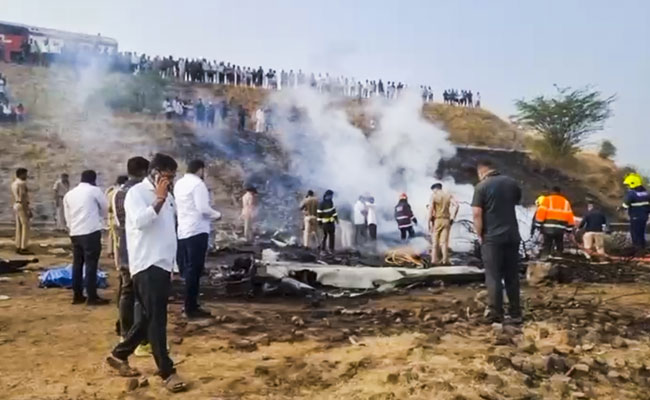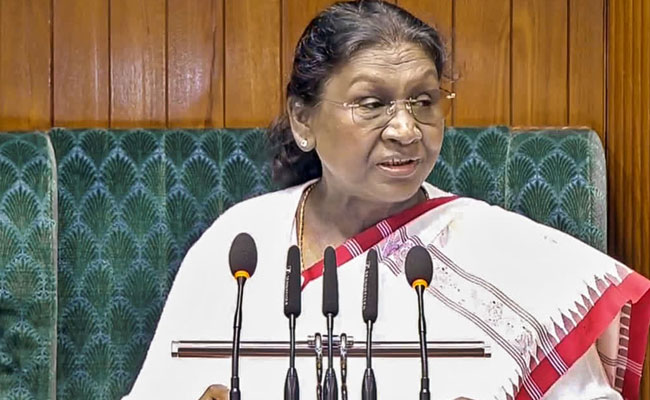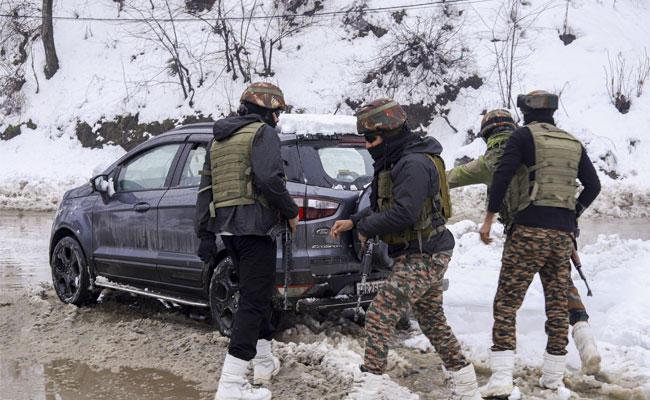Sriharikota: Indian Space Research organization is gearing up for a series of missions, including the launch of small satellite launch vehicles, chairman K Sivan said on Saturday.
He made the comments after the successful launch of earth observation satellite - EOS-01- and nine customer satellites onboard its Polar rocket, PSLV-C49, from this spaceport, about 110 km from Chennai.
Addressing the scientists at the Mission Control Centre, he said "..we have started this mission (PSLV-C49/EOS-01) after COVID pandemic.
Now we have a series of missions on our hands.
Immediately we are going to have the PSLV-C50. It is going to launch satellite CMS01 then we will be having the new vehicle SSLV, the first development flight."
According to ISRO, those satellites which weigh less and come with limited launch options can be sent on Small Satellite Launch Vehicles (SSLVs).
The earth observation satellite sent on PSLV-C49 was weighing around 630 kg.
Currently, small satellites are sent along with other big satellites that are launched using ISRO's trusted workhorse polar satellite launch vehicle (PSLVs) or Geosynchronous Launch Vehicle (GSLV).
Sivan said ISRO was also planning to launch Geosynchronous Launch Vehicle GSLV-F10 carrying earth observation satellite -- EOS-03.
"I am sure team ISRO will always rise to the occasion and meet the requirements as per the demand put on them," he said.
Meanwhile, in a press release, ISRO said following the successful launch of the PSLV-C49/EOS-01 on Saturday, the ISRO Telemetry Tracking and Command Network at Bengaluru assumed control of the earth observation satellite which is the primary satellite.
"In the coming days, the satellite will be brought to its final operational configuration," the release said.
EOS-01, an earth observation satellite, is intended for applications in agriculture, forestry, and disaster management support.
The nine customer satellites are from Lithuania, Luxembourg, and the USA were launched under a commercial agreement with NewSpace India Ltd.
Let the Truth be known. If you read VB and like VB, please be a VB Supporter and Help us deliver the Truth to one and all.
New Delhi (PTI): President Droupadi Murmu on Wednesday said the world saw the valour of Indian armed forces through Operation Sindoor when they destroyed terror camps on the strength of their own resources and asserted that any terror act will be responded with decisive action.
"India has proved that power can be used with responsibility and wisdom. The world has seen the valour and courage of Indian armed forces through Operation Sindoor," Murmu said in her address to both Houses of Parliament, marking the beginning of the Budget Session.
"Our nation, on the strength of our own resources, destroyed terror camps. My government sent a message that any act of terror will be responded to with resolute and decisive action," the President said, amid thumping of desks by Prime Minister Narendra Modi and other parliamentarians.
Murmu said the suspension of the Indus Water Treaty was part of India's fight against terror.
"We are also working on Mission Sudarshan Chakra to further strengthen national security," the President said, adding that security forces have also taken decisive action against Maoist terror.
Following Operation Sindoor, she said, the trust on Indian defence platforms has increased.
Murmu further said her government was committed to social justice in the country.
In the third term of the government, she said, work is being done to further empower the poor, and social security benefits are available to nearly 95 crore citizens now.
"My government is committed to true social justice," she said, adding that 25 crore Indians moved out of poverty in the last 10 years.
The President also said the government has been successful in tackling corruption and scams, and ensuring proper use of public funds.
"For India, the end of the first 25 years of this century has been filled with several successes, proud achievements and extraordinary experiences. In the last 10-11 years, India has strengthened its foundation in every sector," she said.
Lauding India's celebration of the 350th martyrdom day of the ninth Sikh guru, Guru Tegh Bahadur, and the country's tribute to revered tribal leader and freedom fighter Birsa Munda on his 150th birth anniversary, Murmu said, "when the country remembers the contribution of its ancestors, the new generation gets inspiration, which further speeds up our journey towards Viksit Bharat (Developed India)."
"The country celebrated the 350th Shaheedi Diwas of Sri Guru Tegh Bahadur Ji. During the 150th birth anniversary of Birsa Munda, the entire country paid him tribute and remembered his contribution to the tribal community," the President said.
"The events related to the 150th birth anniversary of Sardar Vallabhbhai Patel further strengthened the sense of Ek Bharat, Shresht Bharat (One India, Best India). The entire country became witness to how Bharat Ratna Bhupen Hazarika's birth anniversary celebrations filled the country with music and a sense of unity," Murmu said.
The President's mention of the Viksit Bharat – Guarantee for Rozgar and Ajeevika Mission (Gramin) (VB-G RAM G) scheme was met with loud protests from the Opposition benches.
Murmu said the VB-G RAM G initiative would provide guarantee for 125 days of work, would stop corruption and leakages, and provide a new impetus to rural development.
The Opposition members raised slogans demanding its rollback, even as the treasury benches thumped their desk in support of the scheme.
The President had to take a brief pause amid opposition cries of "vapas lo" (roll back) against the Act that replaced the Mahatma Gandhi National Rural Employment Guarantee Act (MGNREGA).
The Opposition parties have been demanding withdrawal of the VB-G RAM G Act and restoration of MGNREGA as a rights-based law in its original form, the right to work and the authority of panchayats.
The government has, meanwhile, claimed that the new Act will further strengthen the guarantee for rural employment.

